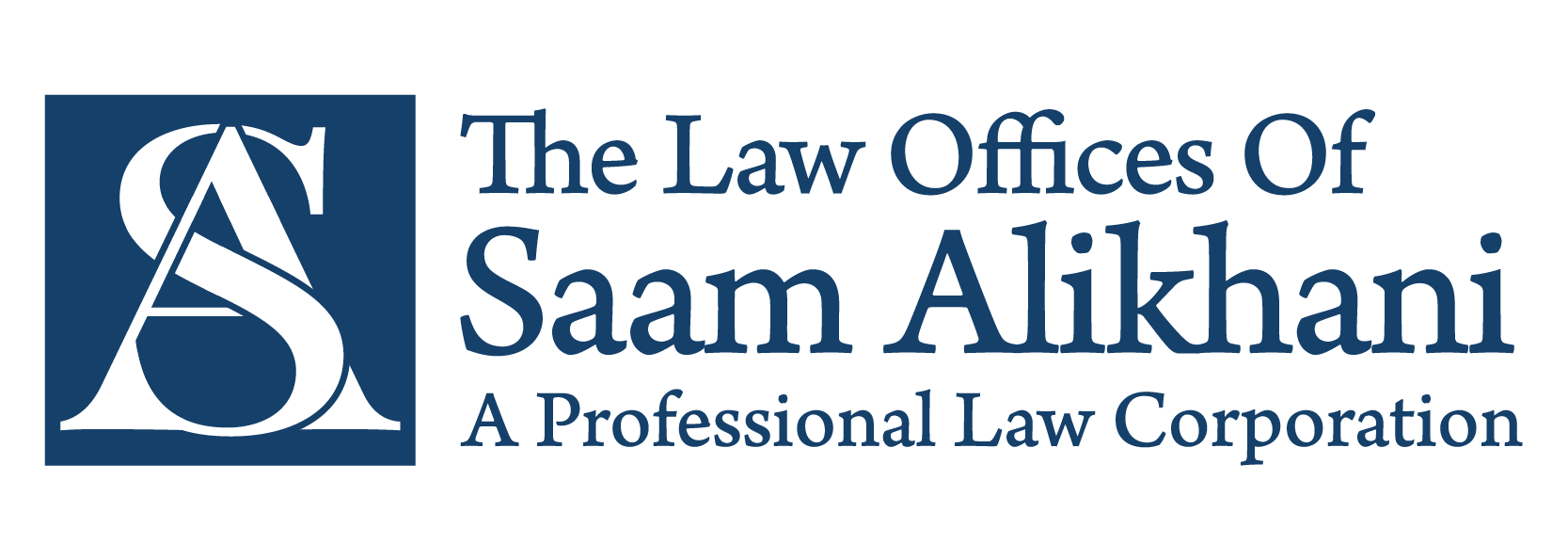Orange County Truck Accident Lawyer
Orange County Truck Accident Lawyer
California is home to the most licensed trucks in the country, with over 15.9 million registered vehicles. California ranks second in the country in total trucking accidents due to its large population, extensive highway system, and high volume of commercial trucking. In 2022, California reported approximately 13,292 large truck accidents, with 489 fatalities involving commercial vehicles. Truck accidents can be some of the most devastating among motor vehicle accidents, as they can weigh up to 80,000 pounds per state law.

Causes of Truck Accidents
90% of truck accidents are caused by driver error. In many cases this is due to the truck driver, who may be distracted, under the influence of drugs or alcohol, or fatigued.
Because commercial trucks are subject to strict regulations under the Federal Motor Carrier Safety Administration (FMCSA), proving negligence in a truck accident may be easier than in a typical car crash.
Common causes of truck accidents include:
Overloading the Trailer or Jackknifing
Trailers on trucks must adhere to strict weight limits. When drivers or trucking companies exceed these limits by overloading the trailer, the additional weight can make the cab difficult to control and lead to an accident. For example, jackknifing occurs when the cab of the truck slows down, but the trailer continues moving at the same speed or faster, causing it to rotate outward (like a jackknife) and end up beside the cab rather than behind it.
Fatigued Driving
Truck drivers, like any other motorists, are not immune to fatigue. In fact, they are more at risk given demanding schedules by trucking companies looking to make a profit. Although they may spend more time on the road and have greater driving experience, they still need to take regular breaks to stay alert. As fatigue sets in, a driver’s focus diminishes, reaction times slow, and the likelihood of a serious accident increases. Trucking companies are responsible for ensuring their drivers take appropriate breaks and avoid driving when fatigued.
Driving Under the Influence of Alcohol or Drugs
According to the American Addiction Centers, an alarming 91% of truckers drink alcohol, and 82.5% use amphetamines on the job. Operating a truck while under the influence of drugs or alcohol is as illegal for truck drivers as it is for any other motorist. In California, the legal blood alcohol concentration (BAC) limit is even lower for commercial drivers. Violating this rule often results in license suspension and termination of employment. Trucking companies are expected to monitor their drivers and ensure that individuals with a history of DUIs are not entrusted with their vehicles.
Violating Hours-of-Service (HOS) Rules
Truck drivers are only allowed to operate their vehicles for a set number of hours per day and week, with further limits on consecutive driving days without a break. These state and federal hours-of-service rules are designed to ensure drivers remain alert and capable of safe driving. When drivers disregard these limits, their risk of making dangerous mistakes increases. Trucking companies can push drivers to violate HOS rules for profit, and may falsify logbooks to hide violations.
Speeding
Due to their size, commercial trucks require significantly more time to accelerate and stop compared to smaller vehicles. Speeding compromises a truck’s ability to stop safely, increasing the likelihood of serious accidents that can cause severe injuries. Truck drivers are required to operate at safe speeds, and trucking companies must create realistic schedules that allow drivers to comply with speed limits.
Unsafe Lane Changes
Large trucks have extensive blind spots, making lane changes particularly dangerous. Truck drivers must remain vigilant and check these blind spots before attempting to change lanes. Quick or abrupt lane changes can also cause the trailer to sway excessively, leading to underride accidents (when a smaller car is caught underneath a truck), jackknifing, or rollovers.
Improper Braking
Trucks need a longer distance to come to a complete stop, so drivers must be trained to control their vehicles at various speeds. Proper braking techniques are especially critical on downhill slopes. Failing to brake correctly can result in catastrophic collisions. Additionally, tailgating by truck drivers, leaving insufficient space to react to sudden stops, poses a significant danger to surrounding vehicles.
Poor Maintenance
Large trucks require frequent maintenance, which is the trucking company’s responsibility. Regulations dictate how often trucks must undergo inspections and specify the types of maintenance that are mandatory. Companies that fail to perform these maintenance checks are negligent and may be held liable for accidents caused by mechanical failures.
What To Do If I Am In A Trucking Accident?
- Dial 911 and request medical assistance if necessary.
- Provide an accurate and complete statement to the police and other authorities responding to the call. It’s important to communicate any injuries and property damage sustained, and to recall what transpired leading up to the accident.
- Take photos and videos of everything. This includes damage to the vehicles, drivers licenses, insurance, and registration. Additionally, ask for the truck driver’s DOT (Department of Transportation) number.
- File a police report. If officers are called to the scene, they can assist. Under California law, one must file a police report within 24 hours of a car accident.
- Speak to witnesses and get their contact information. This will greatly assist in supporting your claim. Send a confirmation text to the witnesses to ensure you have their correct phone number.
- Visit a doctor immediately.
- Call us at (949) 771-4188 – we will evaluate your claim for free and can direct you to the proper medical providers for treatment.
Who Else May Be Responsible for a Truck Accident?
The truck driver almost always has some responsibility in a truck accident. Depending on the specific circumstances surrounding the accident, which requires a thorough investigation by a legal professional, we can potentially hold other parties accountable including:
The Trucking Company:
Although many truck drivers are classified as “independent contractors,” trucking companies have a duty to enforce Federal Motor Carrier Safety Administration (FMCSA) regulations, such as adhering to hours-of-service limits. However, in practice, some trucking companies do the opposite — falsifying logbooks and pressuring drivers to remain on the road beyond safe and legal limits in pursuit of higher profits. Such violations not only warrant civil lawsuits but may also lead to criminal charges.
A Maintenance Company:
If the trucking company does not handle its own maintenance, a third-party business may be held responsible for failing to properly repair the vehicle. For instance, truck tires deteriorate quickly and need timely replacement to avoid blowouts. If a maintenance provider neglected to replace worn tires, resulting in a blowout that caused the truck to veer into another vehicle, their negligence could be a key factor in the crash. In such cases, the party responsible for maintenance could share liability.
A Parts Manufacturer:
In some cases, the issue may not lie with maintenance but with a defective part. For example, if a tire had a manufacturing defect that caused it to fail and triggered the accident, the tire manufacturer could be held accountable. The same principle applies to other critical truck components, such as the braking system or the steering mechanism.
A Shipment Loader:
While truck drivers often load and secure their own cargo, this isn’t always the case. In some instances, a third-party subcontractor or another group of individuals may be tasked with loading the truck. If the cargo was unevenly distributed or improperly secured, and this contributed to the collision, those responsible for loading the shipment could also be held liable.
What Damages Can I Recover For A Truck Accident?
If you have been in a truck accident, you can be compensated for your damages sustained, including:
- Medical bills (hospitalization, emergency room visit, surgeries, and other medical treatment)
- Lost wages, both current and in the future
- Pain and suffering, including any emotional or psychological trauma
- Damage to your vehicle
Why Do I Need A Lawyer For A Truck Accident?
Truck accidents are among the most devastating and complex among motor vehicle accidents. There may be multiple parties involved, and there is often a dispute as to who is at fault. The legal complexities in these cases require legal representation to maximize your claim.
Additionally, insurance companies that represent truckers and trucking companies are known for their aggressive tactics. Without an attorney, they will pressure you to settle for a low-ball offer for “pennies on the dollar” with no further recourse.
By hiring an attorney, you will have an advocate represent you and your claim to maximize your recovery. If the insurance company refuses to settle the case and pay you, an attorney can represent you in a lawsuit.
If you or a loved one have been involved in a trucking accident, call us at (949) 771-4188 for a free consultation.






